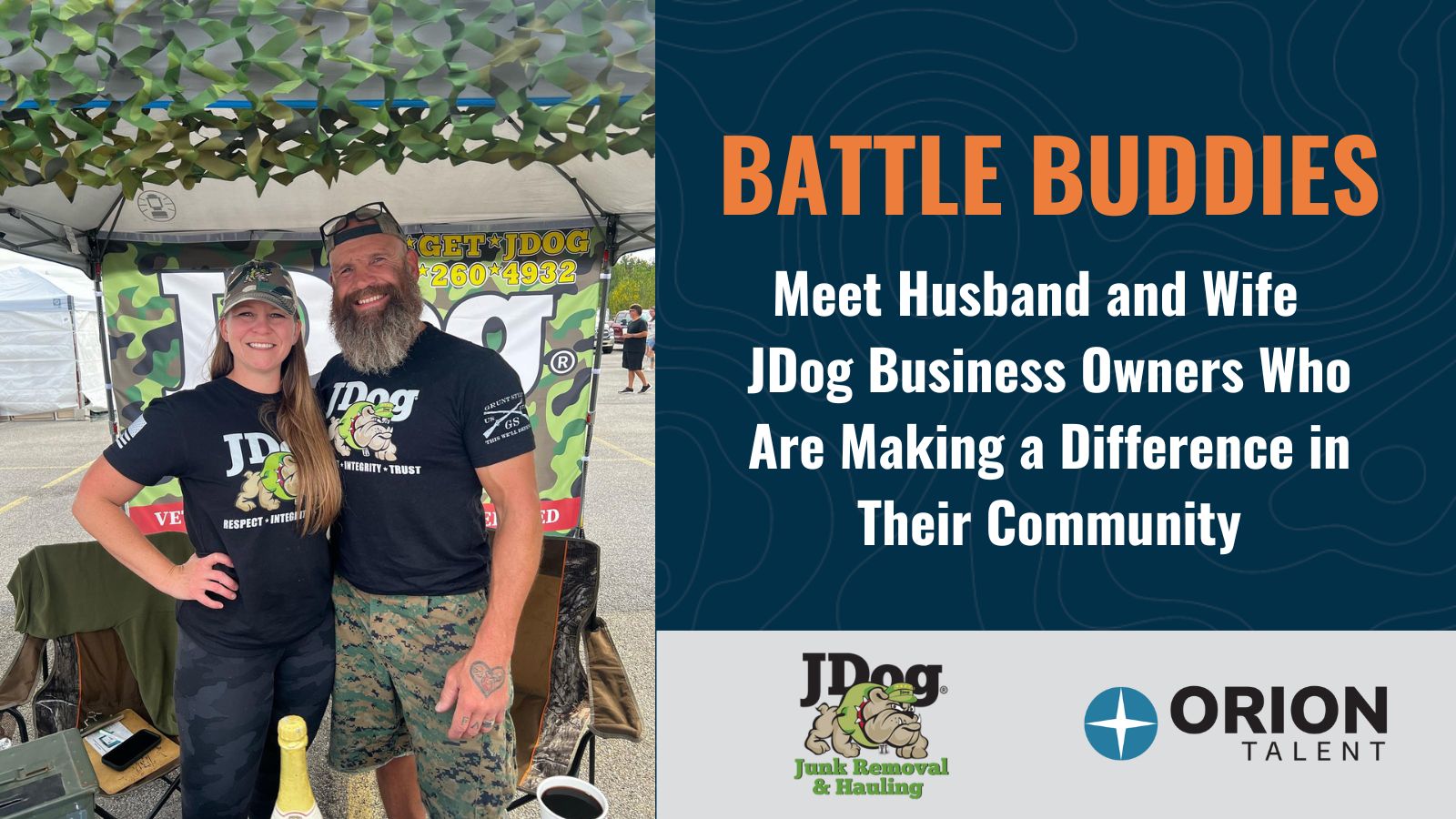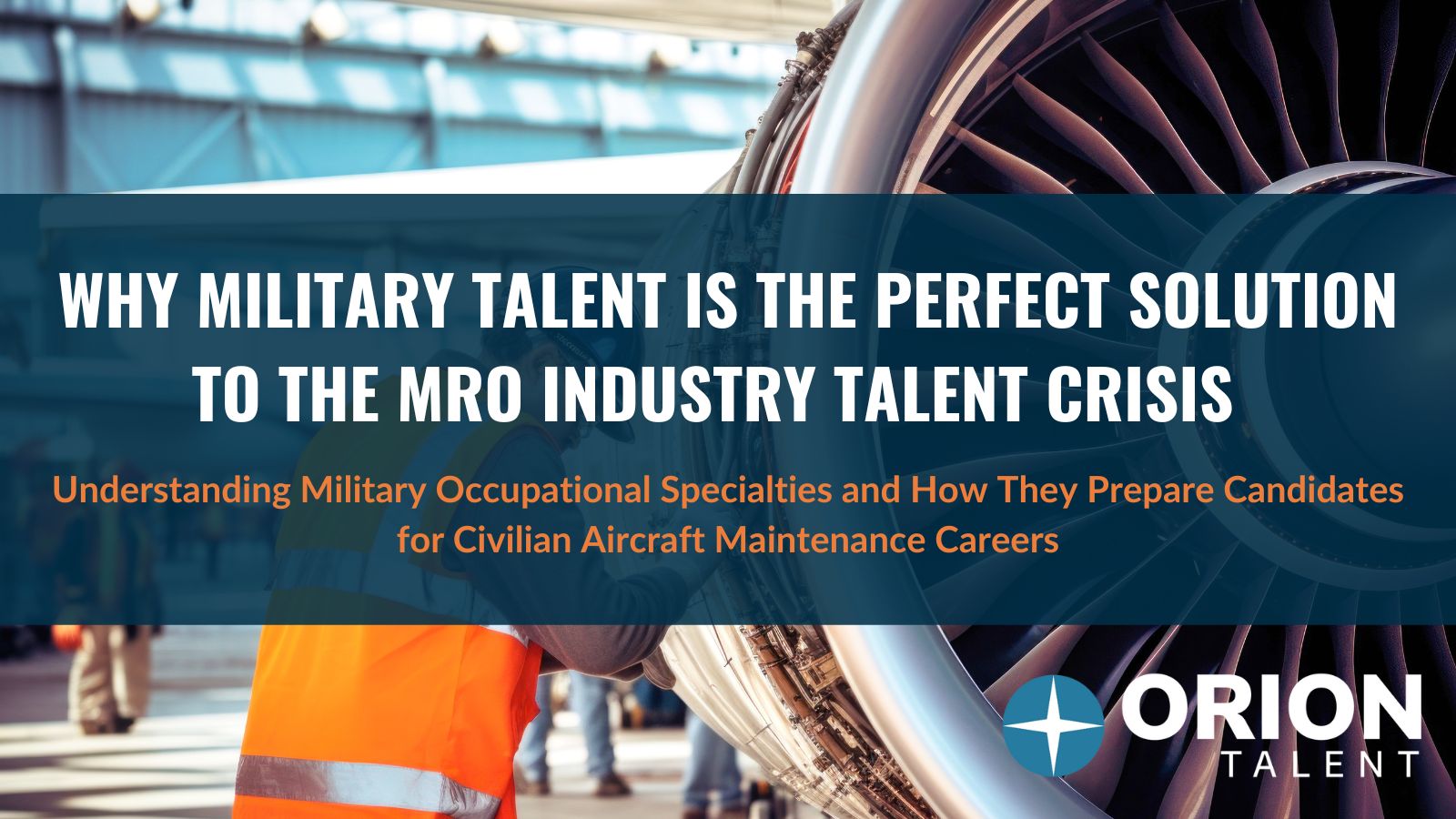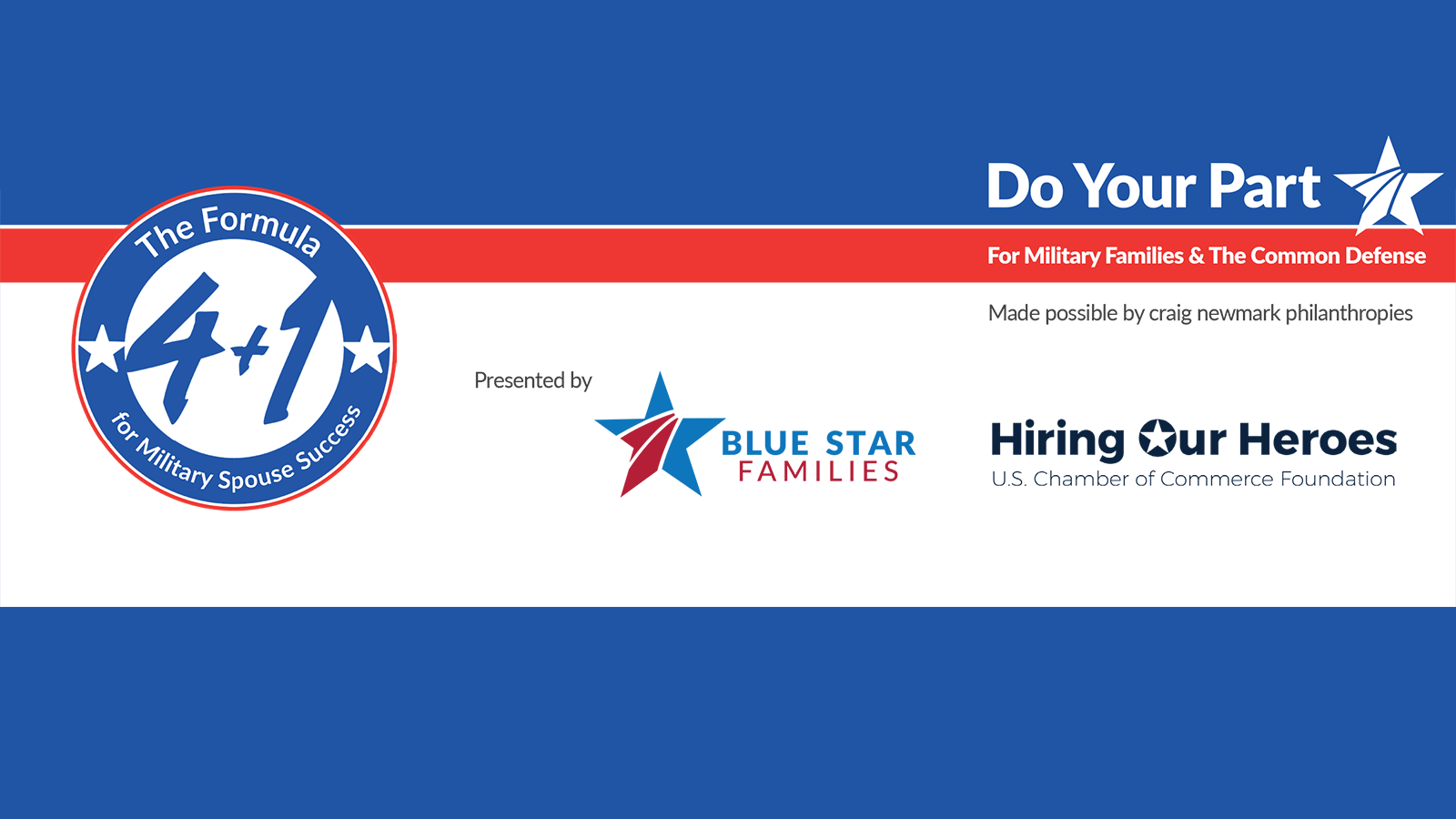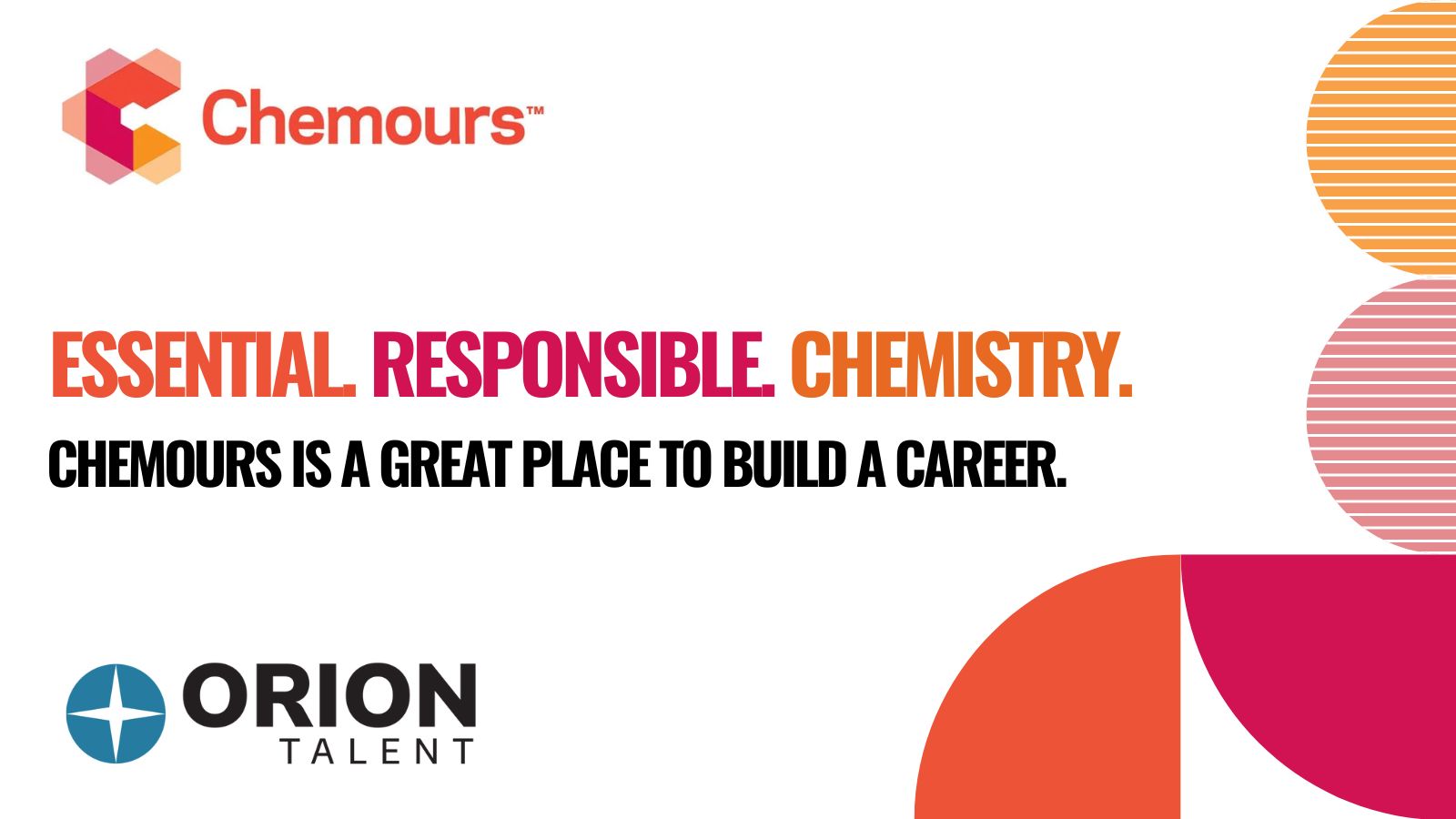.jpg)
Guest Written by Katie Mychalowych, People Partner at Orion Talent, and Originally Published on LinkedIn
Why Community, Attention, and Intentionality Matter in the Workplace
There’s been a lot of heavy stuff going on lately. We’re worried about the inevitable AI world takeover and ever-looming end-of-life-as-we-know-it. And while I’m as much an Isaac Asimov true believer up there with the nerdiest of them, the idea that an out-of-control ChatGPT could cause “literally everyone on earth [to] die” (Yudowsky, 2023) has given me pause. Not so much for a doomsday research spiral (ok, maybe just a little of that), but more of a reflection on some of the philosophical questions implicit in the hype, the reason this scares us beyond the surface-level drama.
Like, what does it really mean to be human? And what does it mean to be a human at work? What makes our lives and work products unique from that of an AI bot, especially for those of us who use it to do our jobs? What does the AI revolution mean for us as business leaders?
 I’m obviously not going to solve questions that have plagued mankind since the beginning of time in under 1000 words and I know only enough about AI to be just a little bit dangerous. But I can offer a few things from my own (non-doomsday) research quests and ruminations that I hope help you as you and your teams ponder these things for yourself.
I’m obviously not going to solve questions that have plagued mankind since the beginning of time in under 1000 words and I know only enough about AI to be just a little bit dangerous. But I can offer a few things from my own (non-doomsday) research quests and ruminations that I hope help you as you and your teams ponder these things for yourself.
What does it mean to be human?
As humans, we’re relational beings. It’s in the research; it’s in the data. But more importantly, it’s in YOUR lived experience. You know that you need other people in order to do good work. Your business relies on others for talent as well as for business interactions. On a personal level, we need each other for stronger motivation, to encourage each other towards professional development, to help each other deal with bad bosses or to be better leaders ourselves, to be more creative, and to think more innovatively (Arshad et al., 2021; Xu et al., 2021; Durrah, 2022).
Moreover, we have all had the (however lamentable) opportunity to live through the COVID-19 pandemic where this implicit truth was thrown out of balance. If social distancing, lockdowns, and 2020, in general, taught us nothing else, it’s this: You are not meant to exist on your own. In fact, existing on your own, especially amidst the turmoil, fear, and terrible world events (i.e., our daily lives), is a pretty grim and painful reality—something no AI machine could ever experience.
The importance of community and the things that make us human
When we look at work, which takes up so much of the short years we have on this planet, I believe this component needs to be front and center. If we want work to be a source of energy, inspiration, and better living, it should be something that acknowledges, cultivates, and encourages community. (And YES – this includes the virtual workforce! You do not need to be in-person to have this environment or to implement it into your business!).
It's even more crucial considering this day and age, a time where so much of work can be outsourced to things like ChatGPT, Bard, or whatever else is the currently trending AI tool for business because it is our differentiator. The human mind is priceless, and it is my personal conviction that as we see the rise of more and more AI-type tools, the things that define us singularly as humans will matter more and more in the workplace.
After all, we are hard-won commodities, and we need more than a singular input to give a singular output. Our minds are made for the most advanced, highest-level thought processing possible, something that considers way more than a binary mix of 1’s and 0’s. And we need community, culture, and connection to do it well!
The importance of treating talent well
 If we’re not treating people like people—nurturing, fostering, and encouraging talent with all the resources we possibly can spare (read: an “elevated” employee experience), our businesses will suffer. Those hard-won commodities will find another workplace that does it better. I mean, why would they stay if we’re treating them like a GPT code that does not need others, does not feel, emote, or hurt? Paying for a human mind means that you must care about those things as a leader; you must care about time off, parental leave, and opportunities for growth. You must care about creating a communal workplace culture that celebrates and uplifts human differences AND commonalities (think: DEI strategy!).
If we’re not treating people like people—nurturing, fostering, and encouraging talent with all the resources we possibly can spare (read: an “elevated” employee experience), our businesses will suffer. Those hard-won commodities will find another workplace that does it better. I mean, why would they stay if we’re treating them like a GPT code that does not need others, does not feel, emote, or hurt? Paying for a human mind means that you must care about those things as a leader; you must care about time off, parental leave, and opportunities for growth. You must care about creating a communal workplace culture that celebrates and uplifts human differences AND commonalities (think: DEI strategy!).
In this day-and-age, when Grammarly can fix your syntax and ChatGPT can write your presentation outline, work—human work—must mean more just a paycheck. Talent increasingly seeks meaningful work, something that gives them a sense of purpose. Working for your company must be a source of energy, inspiration, and better living. The proliferation of AI will, in my opinion, only make these things bigger, brighter, and more essential… the need for work that gives us purpose will be (and is!) more critical than it ever has been in history.
Attention and intentionality in leadership
It is not enough to merely acknowledge that we need community. We must live it. I’ve been thinking a lot about attention and intention as critical human traits, things we must do because of what and who we are. Attention is a very difficult thing to come by in a world of 30-second video clips and a marketplace that has monetized every second of your viewing time (Scott Galloway calls this an “attention economy”; read more here). This makes the amount of attention you give to the people around you even more valuable.
The attention you give to our fellow humans is a way we live out the fostering of connection. It’s a deliberate practice of acknowledging that, despite our many and beautiful differences, we are at the core, all humans, all relational beings, all with a need to be seen and heard and attended to. This can be manifested in physical habits as easy as active listening. (Authentic) active listening can have a profound effect on people around us, in and out of the work setting. Demonstrating this as leaders can even make organizational change easier to process, giving employees a sense of control when things are otherwise out of control (Kriz et al., 2021). It makes people feel acknowledged, legitimized, and supported.
practice of acknowledging that, despite our many and beautiful differences, we are at the core, all humans, all relational beings, all with a need to be seen and heard and attended to. This can be manifested in physical habits as easy as active listening. (Authentic) active listening can have a profound effect on people around us, in and out of the work setting. Demonstrating this as leaders can even make organizational change easier to process, giving employees a sense of control when things are otherwise out of control (Kriz et al., 2021). It makes people feel acknowledged, legitimized, and supported.
And likewise, intention is a natural pairing to attention. Intentionally applying our time and energy to those around us is essential in the sustained application of attention. Deliberately and actively seeking new approaches and methods to connect is how we make our relationships last. In our businesses, it’s how we make work relationships relevant and real. (And, side note, intentionality is the thesis statement to a remote-work strategy… we cannot develop connection virtually unless we adopt this mentality).
Bringing more humanity to the workplace
Bottom line, devoting your attention to your team is how you can live community beyond the surface level: taking notice and giving pause. Being a student of humankind is not just the work of psychologists and historians; this is how we allow our talent and our businesses to thrive. What would our workplaces (and our virtual workplaces!) look like if we brought a little more humanity into them? A little more attention? A little more intention?
After all— time, tide, and formation wait for no one. We only have so much life to live… why wait for that looming AI takeover to make it more meaningful?
Elevating your employment brand and engaging candidates
Be sure to follow Guest Writer Katie Mychalowych on LinkedIn for leadership advice, and tune in to the Orion Insights Blog for industry news, thought leadership, and hiring trends. If you need assistance attracting qualified candidates and meeting your DEI goals, Orion Talent’s HirePurpose® Diversity Sourcing and Talent Attraction Solution can help you build a culture where all employees can bring their authentic selves to work each day.
 Author Bio: Katie Mychalowych is a People Partner at Orion Talent. Before Orion, she worked for Sonos, Inc., and started out her career as a military officer. Katie has a Master's degree in Industrial/ Organizational Psychology and is certified in Project Management. She's passionate about leveraging research to make work happier, healthier, and more productive! You can connect with her on LinkedIn.
Author Bio: Katie Mychalowych is a People Partner at Orion Talent. Before Orion, she worked for Sonos, Inc., and started out her career as a military officer. Katie has a Master's degree in Industrial/ Organizational Psychology and is certified in Project Management. She's passionate about leveraging research to make work happier, healthier, and more productive! You can connect with her on LinkedIn.
References:
Arshad, A., Sun., P. & Desmarais, F. (2021). Abusive supervision and employee empowerment: The moderating role of resilience and workplace friendship. Journal of Leadership & Organizational Studies, 28(4). 479-494.
Durrah, O. (2022). Do we need friendship in the workplace? The effect on innovative behavior and mediating role of psychological safety. Current Psychology.
Kriz, T., Jolly, P., & Shoss, M. (2021). Coping with organizational layoffs: Managers’ increased active listening reduces job insecurity via perceived situational control. Journal of Occupational Health Psychology, 26(5). 484-458.
Yudkowsky, E. (2023, March 29). The Open Letter on AI Doesn’t Go Far Enough. Time.https://time.com/6266923/ai-eliezer-yudkowsky-open-letter-not-enough/
Xu, Q., Yunlu, D., Kim, S. (2021). An examination of mediating processes of work and nonwork support for employee development. Human Resources Development Quarterly, 32. 301-318.
Archives
- October 2024
- May 2024
- March 2024
- February 2024
- January 2024
- December 2023
- November 2023
- October 2023
- September 2023
- August 2023
- July 2023
- June 2023
- May 2023
- April 2023
- March 2023
- February 2023
- January 2023
- December 2022
- November 2022
- October 2022
- September 2022
- August 2022
- July 2022
- June 2022
- May 2022
- April 2022
- March 2022
- February 2022
- January 2022
- December 2021
- November 2021
- October 2021
- September 2021
- August 2021
- July 2021
- June 2021
- May 2021
- April 2021
- March 2021
- February 2021
- January 2021
- December 2020
- November 2020
- October 2020
- September 2020
- August 2020
- July 2020
- June 2020
- May 2020
- April 2020
- March 2020
- February 2020
- January 2020
- December 2019
- November 2019
- October 2019
- September 2019
- August 2019
- July 2019
- June 2019
- May 2019
- April 2019
- March 2019
- February 2019
- January 2019
- December 2018
- November 2018
- October 2018
- September 2018
- August 2018
- July 2018
- June 2018
- May 2018
- April 2018
- March 2018
- February 2018
- January 2018
- December 2017
- November 2017
- October 2017
- September 2017
- August 2017
- July 2017
- June 2017
- May 2017
- March 2017
- February 2017
- January 2017
 RSS Feed
RSS Feed
Subscribe to Orion's Blog
Featured Blogs





.jpg)















